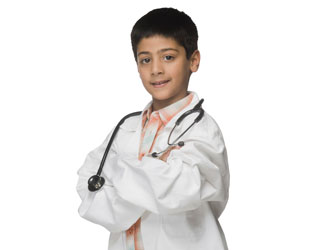What Is Hypospadias?
Hypospadias is a birth defect of the penis, in which the opening of the urethra -- the tube that urine flows through -- is on the underside of the penis, rather than at the tip. It usually affects the appearance of the foreskin and the direction of the urine stream; it can also cause the penis to curve downward (chordee). In severe hypospadias, the penis may be small (micropenis), and it can be difficult to tell whether the child has male or female genitals.
Goals of Care
When treating hypospadias, our team has three main goals:
- Your child is able to stand up to urinate.
- A straight penis with an opening at or near the tip to allow for normal sexual function and fertility in adulthood.
- A good cosmetic appearance so the child has good self-esteem and better quality of life.
Surgery Isn't Always Necessary
Mild hypospadias doesn’t necessarily need surgery. This may be the case if normal urinary and sexual function will not be affected, and the difference in appearance is minimal. In some instances, parents wait until the child is older to have surgery. Waiting makes no difference in surgery success rates.
If Hypospadias Surgery Is Needed
When surgery is necessary, it is usually done between six and 18 months of age, when anesthesia is safe and the penis has completed its initial growth phase. Our pediatric urologists have advanced experience treating hypospadias, so we explain all your options and offer guidance to help you decide what’s right for your son.


